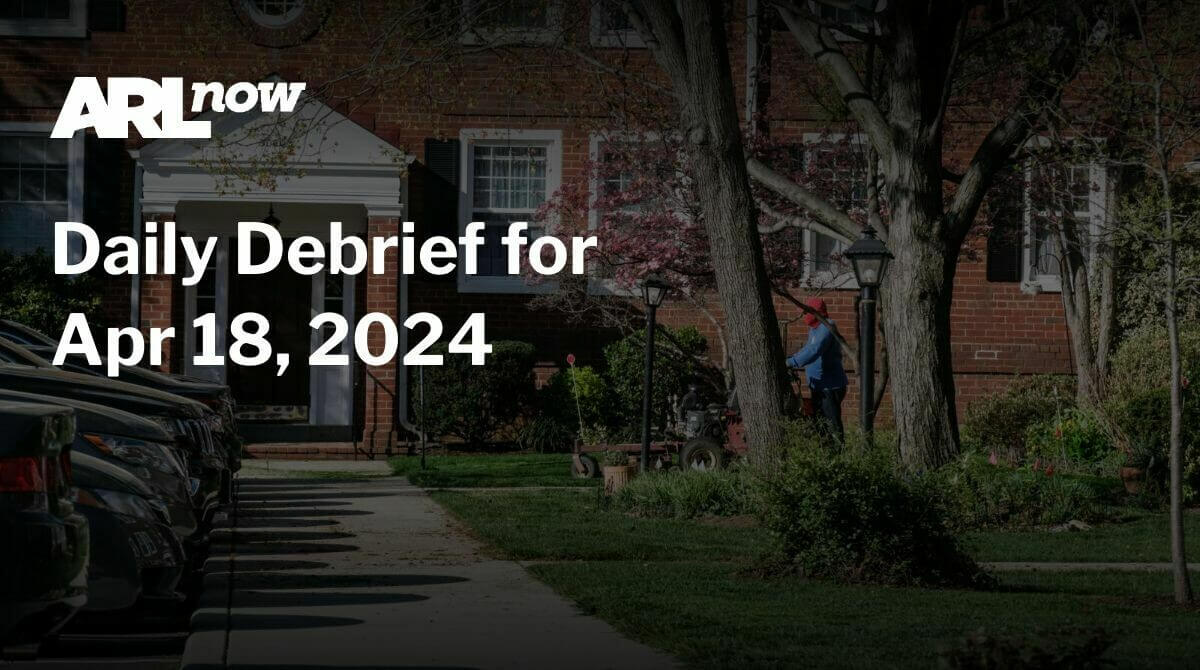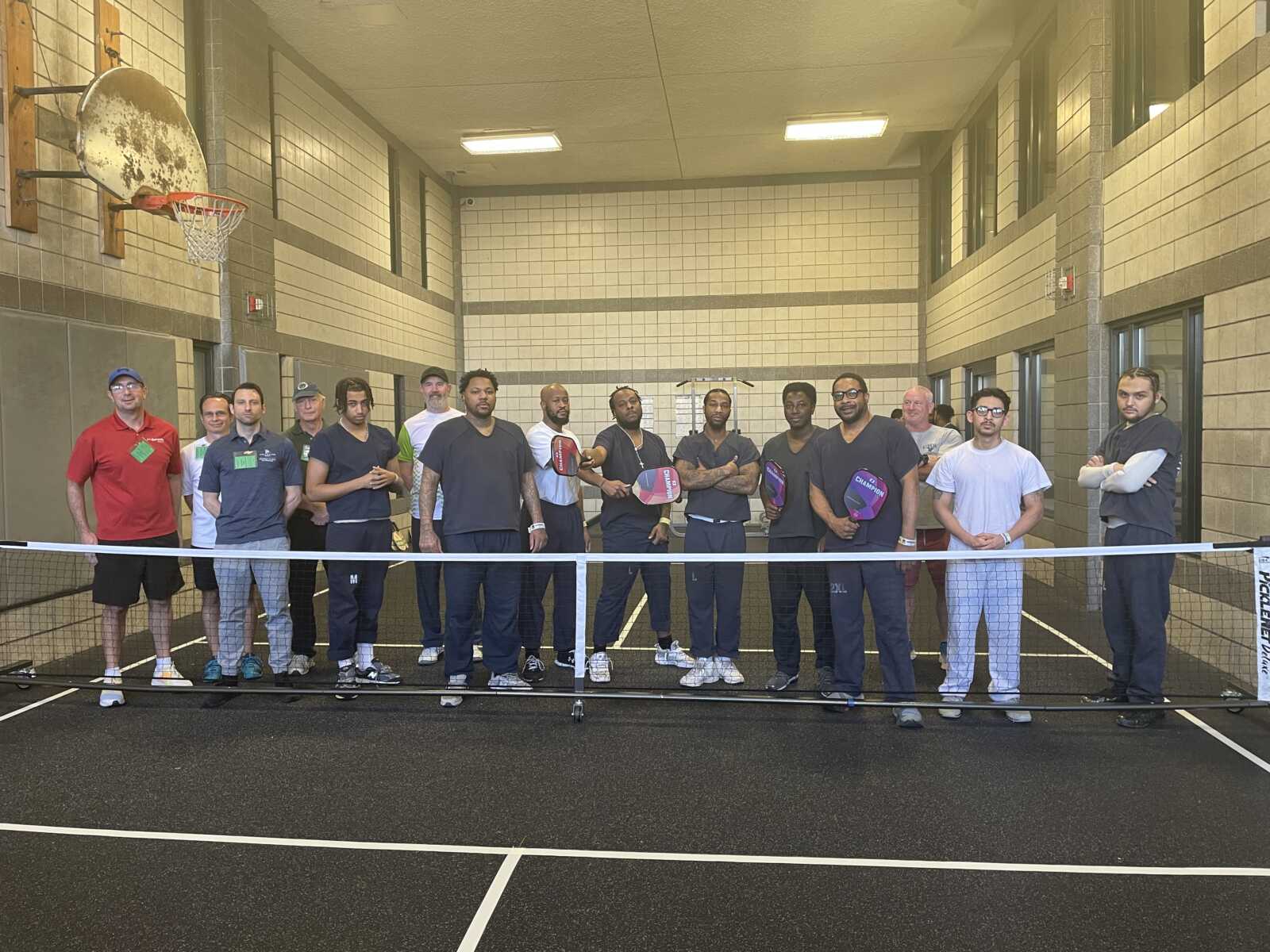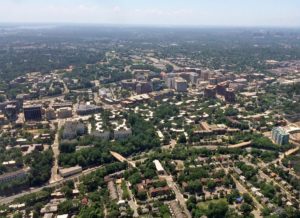 Arlington residents will be able to weigh in on the county’s proposal for more affordable housing before the County Board votes on the ambitious plan.
Arlington residents will be able to weigh in on the county’s proposal for more affordable housing before the County Board votes on the ambitious plan.
Arlington County will hold the hearings on Sept. 8 with the Planning Commission and Sept. 19 with the County Board.
“Ensuring that Arlington has housing affordable to folks at all incomes in all stages of life is one of the most important challenges facing our community,” County Board Chair Mary Hynes said. “Whether we are seeking to attract businesses, helping Arlingtonians age in place or ensuring that residents who rent have the opportunity to grow roots, the preservation and creation of affordable housing is a necessary component of our long-term sustainability and vibrancy.”
The county’s plan includes the creation of 15,800 additional affordable housing units by 2040, bringing the total to 22,800 units or 17.7 percent of the total housing stock in Arlington.
The county currently has 7,000 committed affordable units (CAFs), which are bound to keep rents lower thanks in part to federal and/or local government subsidies. Affordable housing programs account for about 5 percent of Arlington County’s overall budget, excluding school funds.
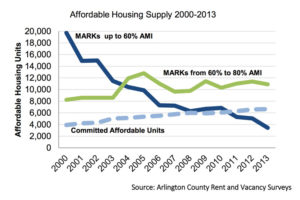 In Arlington, housing is typically considered “affordable” for households that make less than 60 percent of the area’s median income (AMI), or $64,480. According to a press release from the county, only 9 percent of housing in Arlington is currently affordable to that group of residents.
In Arlington, housing is typically considered “affordable” for households that make less than 60 percent of the area’s median income (AMI), or $64,480. According to a press release from the county, only 9 percent of housing in Arlington is currently affordable to that group of residents.
“There is insufficient affordable housing to meet the demand of renters” with incomes below 60 percent of AMI, the county says.
As part of its Affordable Housing Master Plan, the county also plans to incentivize the creation of 2,700 moderately-priced homes that would be affordable to buy for those to those who make between 80 to 120 percent of the area median income.
Moderate income renters will not, however, see an increase in housing opportunities under the plan.
“The County’s current rental stock sufficiently serves both families, and single-person households, who have incomes above 80 percent of AMI,” the plan concludes. It thus envisions trying to preserve existing 60-80 percent AMI committed units while focusing on creating new committed units for sub-60 percent AMI residents.
While the additional housing would help low-income households in Arlington, the county also identified renters over 65 years old, families and racial and ethnic minorities as the target population for these affordable units.
The need for committed units to replace disappearing market-rate affordable units is particularly acute. A county study found that market rate units affordable for those under 60 percent AMI in Arlington may all but disappear by 2020.
Support for affordable housing among county policymakers is strong. Arlington’s housing efforts are generally supported by all five County Board members and each of the four candidates for County Board have expressed support for affordable housing programs to varying degrees at one point or another.
Some critics, however, contend that the county’s new plan is unrealistically expensive and will require considerable additional housing density and school capacity.
In a presentation to the Arlington County Civic Federation this month, local activist Suzanne Sundburg presented some back of the envelope estimates about the costs.
Assuming that 632 CAFs would have to be created every year for the next 25 years, Sundburg estimated that it would require $54 million per year in loans from the county’s Affordable Housing Investment Fund, at a cost of $85,000 AHIF funding per unit. That figure doesn’t include rent subsidies that the county provides to some residents living in CAFs.
Alternatively, if the county were to decide to create CAFs by seeking developer contributions from residential redevelopments, the county would potentially need to allow the creation of more than 200,000 market rate units, based on the ratio of site plan units approved to CAFs created from those approvals in 2014 (1,505 to 111), according to Sundburg.
Another indirect cost: an increase in school enrollment. Based on several sources, Sundburg estimated that each committed affordable housing unit generates an average of 0.8 students in Arlington Public Schools. That compares to a “student generation factor” of 0.08 for elevator apartments and 0.42 for single family homes in general.
(Arlington doesn’t break out a student generation factor for CAFs. Russell Schroeder, a project manager for the affordable housing study, said the county does not know the figure yet but is working to calculate it and the financial impact of the master plan’s goals on the school system, following a request from the County Board.)
During the County Board meeting on Saturday, several members said more information was needed from the school system about how affordable housing would affect student turnover and space limitations.
But for many of the questions on schooling, the answer was “it’s complicated.”
Hynes said the Board needs to ask the school system how children from buildings along Columbia Pike that transitioned from market rate affordable housing to committed affordable units performed in school and on test scores.
The plan to advertise the public meetings was a topic of long debate at Saturday’s board meeting. John Vihsdaht ultimately voted against holding the public hearing in September, arguing for a later date, while Vice Chair Walter Tejada told the Board he would have been ready to vote on it in July.
“I just think there needs to be more refinement or improvement or recognition of so many community issues that have surfaced in only recent weeks so that I’m not prepared to go forward with the advertising today, despite the fact there’s more to like in this plan than not to like,” Vihsdaht said.
Should the Affordable Housing Master Plan pass, it’s unclear how Arlington will fund it.
The county’s latest financial forecast predicts that tax revenue will grow at a sluggish 2.5 percent annually over the next five years. Given budgetary pressures like rapidly rising school enrollment, the county is forecasting annual budget deficits between $1 million and $32 million, according to the minutes from the June 10 meeting of the Arlington Community Facilities Study Committee.
Sundburg, meanwhile, contends that the county’s approval of development projects is to blame for a reduction in affordable housing.
“The 7,000+ CAFs Arlington has produced don’t come close to offsetting the massive loss of MARKs [market rate affordable housing units] — and this hemorrhaging of MARKs is directly attributable to the county’s densification strategy,” she wrote in a June 10 letter to the County Board. “Doubling-down on these same failed, counterproductive strategies won’t make this plan/program improve the outcomes. But it will impose a significant burden on the county’s school system and on the county’s finances.”
Contrary to Sundburg’s argument, some affordable housing activists contend that a lack of development actually makes housing affordability worse by allowing demand for housing to outstrip supply in a given area.
As for why affordable housing in Arlington is crucial to the county’s future, the county’s plan offers the following explanation.
Housing affordability is vital to the social and economic sustainability of our community. Providing a range of affordability:
- Supports our people at all ages and stages of life, such as young families who are just starting out; seniors who wish to securely age in place; families with children who are looking for stability; and hardworking employees who deserve opportunity and choices.
- Improves our neighborhoods by promoting stability; maintaining diversity; assuring the quality of the built environment and neighborhood character; and reinforcing efficient transportation and land use policies.
- Strengthens our economy by enhancing our market competitiveness; assuring employers access to workers they need for a variety of jobs; providing better access for workers to homes near their jobs; attracting the best employees; connecting business owners with a stable customer base; and allowing consumers the flexibility to spend less of their income on housing.
The values that are central to the County’s vision — diversity, inclusivity, sustainability — are supported by providing a range of housing affordability. These values are a hallmark of Arlington County and actively supporting them through our policies has helped to make Arlington County a national model of a modern desirable place to live, work and play.
The ability to provide sufficient housing affordable to people at all income levels is increasingly important for meeting Arlington County’s full economic development potential. In recent decades, the County has benefited from growth in high wage jobs, and these jobs will continue to comprise a significant share of local economic growth. However, workers in lower-wage jobs across all industries form the backbone of the County’s economy, supporting business functions, providing resident-based goods and services, and serving the thousands of visitors who come to Arlington each year. Without a sufficient supply of housing affordable to lower-wage workers, it will become increasingly difficult for the County to attract and retain a diverse workforce and to continue to grow a vibrant, sustainable local economy in the future.
Heather Mongilio co-authored this article
Recent Stories

Unlike our competitors, Well-Paid Maids doesn’t clean your home with harsh chemicals. Instead, we handpick cleaning products rated “safest” by the Environmental Working Group, the leading rating organization regarding product safety.
The reason is threefold.
First, using safe cleaning products ensures toxic chemicals won’t leak into waterways or harm wildlife if disposed of improperly.
Second, it’s better for you and your family. Fragrant chemicals in surface cleaners can expose you to a similar amount of pollutant particles as a busy city road, New Scientist reported.
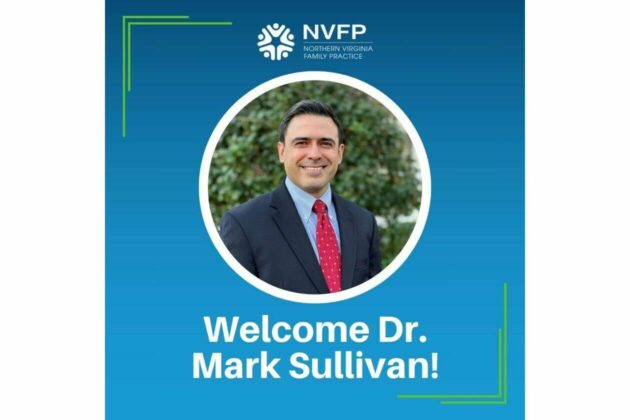
Northern Virginia Family Practice (NVFP), known for its comprehensive concierge healthcare, is thrilled to introduce Mark Sullivan, MD as the newest member of its family medicine team.
Dr. Sullivan brings a wealth of experience in family medicine, underpinned by a passion for delivering personalized, patient-centered care. He has a distinguished background in managing various medical conditions, emphasizing preventive care, health education and chronic disease management. Dr. Sullivan is adept at employing the latest medical research and technologies to enhance patient outcomes.
Beyond his medical expertise, Dr. Sullivan is committed to the well-being of his community, demonstrating this through his active engagement in local health initiatives and educational programs. His approach to medicine is holistic, focusing on integrating physical, mental and emotional health and patient education to achieve optimal patient wellness.
Dr. Sullivan is now accepting new patients at their newly established Arlington office at 2445 Army Navy Drive, Arlington, VA, 22206. The office, known for its patient-friendly amenities and state-of-the-art medical facilities, continues to provide the exceptional, personalized care NVFP is known for in its newly upgraded Arlington location.
Sweeney Todd
A victim of a gross injustice that robbed him of his wife and child, Sweeney Todd sets about exacting a terrible revenge on society.
Fascination
Goth-Dark Wave Dance Party with Belly Dancing and Drag King Show.
Part of OurAlternative Thursdays for Alternave People with Alternative Lifestyles
Performances By
Belladonna and the Nightshades
Ya Meena
Drag King - Ken Vegas
DJ Michelle Guided


